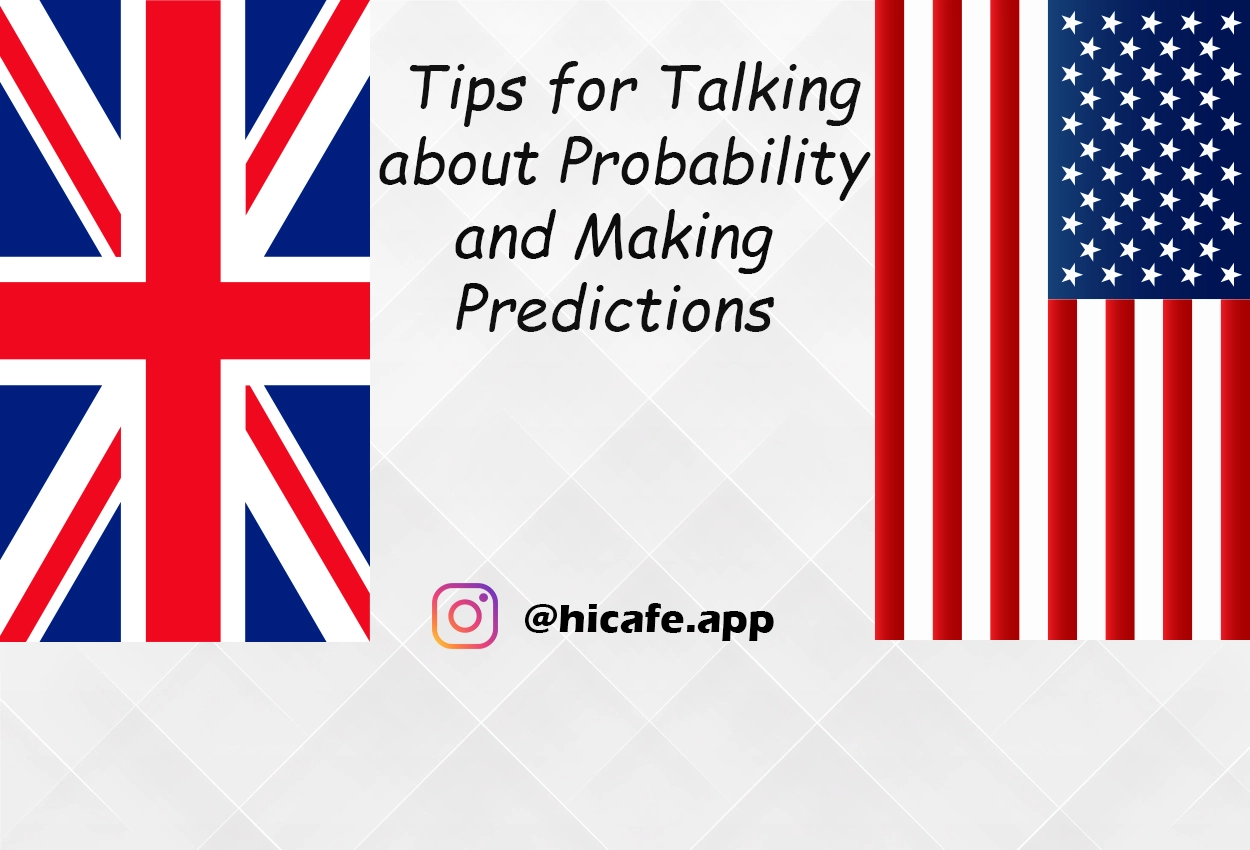Ever wondered how to talk about possibilities and what might happen in the future? Well, in this lesson you learn about it! English has a bunch of ways to express probability, from super certain to highly unlikely. We’re diving into the world of “might,” “could,” and “will,” along with some handy tips to make your prediction in English conversation sound smart. Let’s get started!
Previous Conversation Tip Lesson
Telling a Short Story in English
Making Predictions in English
There are many ways of saying that something will probably or possibly happen in English.
Probable
- Bound to = certain: With all that practice, she’s bound to ace that presentation!
- Sure to = certain: He’s sure to win the lottery – he’s got a lucky streak!
- Likely to = probable: We’re likely to see a rise in online shopping this holiday season.
- Definite = sure: She’s a definite candidate for the promotion – she’s been killing it!
- Probable= It’s probable that we’ll have a snowstorm this winter, based on last year’s weather.
- Likely= With the current political climate, an election is likely within the next year.
- Will definitely happen= There will definitely be a huge party at the office for the company anniversary.
- Will probably happen= They’ll probably release a new phone model in the spring.
Possible
- May: We may go to the concert tonight – depends on how we feel after work.
- Might: There might be a new flavor of ice cream at the store – I’ll have to check!
- Could: There could be a traffic jam on the highway – it’s rush hour.
- … is possible: Do you think they’ll raise the price of gas again? Yes, that’s possible.
- … is unlikely: It’s unlikely that I’ll win the raffle – I never seem to get lucky.
- Will possibly: She’ll possibly come over later tonight – she’s been busy all day.
- Probably won’t: They probably won’t make it to the meeting on time – they’re always running late.
- Definitely won’t: I definitely won’t eat that spicy curry – my stomach can’t handle it!
- … is highly unlikely: It’s highly unlikely that we’ll get a vacation this year – the budget’s tight.
Note: Be careful of the word order.
“Definitely” and “probably” come after “will” (in positive sentences) and before “won’t” in negative sentences.
Variations
You can add words to alter the strength of probability:
- Highly likely / unlikely (= very likely / unlikely)
- Quite likely / probable / possible (= more likely, probable or possible)
- Could possibly / probably
- Most definitely won’t (= even more unlikely)
Making predictions
When we want to say what we think will happen in the future, we can either use will followed by the verb without to, or going to followed by the verb.
- What do you think will happen in the next year with the stock market?
- This weekend is going to be packed with events – I’m so busy!
- There won’t be any time for relaxation this month – it’s all work.
- He isn’t going to win the election – he’s not very popular with voters.
Speaking tip: Because we also use will to talk about intentions and strong decisions, we often use going to to sound more objective.
“He won’t help us” can imply his decision not to assist. However, “He isn’t going to help us” sounds more like a neutral prediction or stating an objective fact – perhaps he lacks the ability to help us.
Make Predictions based on existing knowledge
We can make predictions based on what we can see now. To do this, we use going to and the verb.
For example:
- Watch out! You’re going to spill your coffee!
- It’s going to be a great day for a picnic – the weather is perfect!
Conclusion
Now you’ve got the tools to talk about the future with confidence and precision. Remember to choose your words wisely and be aware of the strength of probability. Whether you’re predicting a sunny day or a win for your favorite team, you’ve got this! Keep practicing, and soon you’ll be a master of predictions!
Next Conversation Tip Lesson
Related Conversation Lessons
None
Practice Conversation with HiCafe App
By using HiCafe App, you can join free discussion events and Practice English Conversation online or in-person and improve your verbal skills.
All Conversation Lessons
To see and read all of our conversation lessons, you can visit our Improve English Speaking Skills page.



